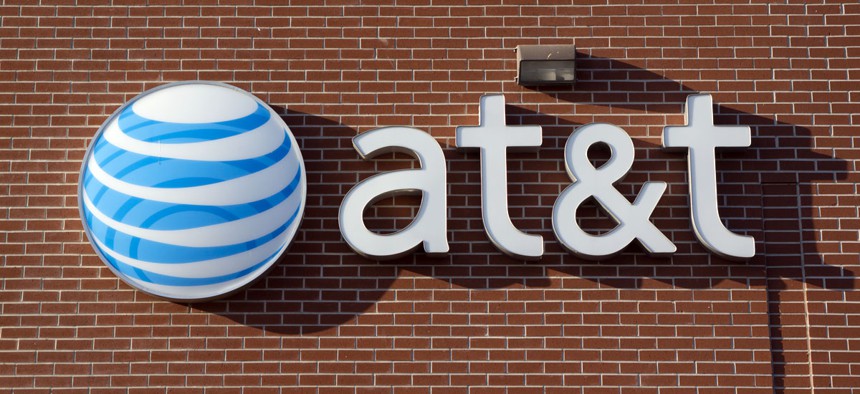AT&T Faces $100 Million Fine in FCC's First-Ever Net-Neutrality Case

Rob Wilson/Shutterstock.com
The wireless carrier, which is also fighting FTC charges, limits "unlimited" data.
The Federal Communications Commission plans to fine AT&T $100 million in the agency's first-ever attempt to enforce net-neutrality rules.
AT&T misled consumers by limiting "unlimited" data plans, the FCC claimed Wednesday. Under AT&T's "Maximum Bit Rate" policy, it reduces the data speeds of customers paying for unlimited data plans after they use a certain amount of a data in a billing period. According to the FCC, the speeds were so slow that consumers were unable to use common applications like videos or GPS maps.
AT&T's policy, the FCC said, violates the "transparency" requirement of the net-neutrality rules, which requires carriers to sufficiently inform consumers about network-management practices.
It is the largest fine in the FCC's history, but agency officials argue it is still far less than the billions of dollars AT&T has made on the "unlimited" plans.
AT&T is also fighting a lawsuit from the Federal Trade Commission, which claims the policy amounts to deceptive advertising.
"Consumers deserve to get what they pay for," FCC Chairman Tom Wheeler said in a statement. "Broadband providers must be upfront and transparent about the services they provide. The FCC will not stand idly by while consumers are deceived by misleading marketing materials and insufficient disclosure."
AT&T first began offering unlimited data plans in 2007, and began capping speeds for its heaviest data users in 2011.
In a statement, Michael Balmoris, an AT&T spokesman, said the company will "vigorously dispute" the FCC's allegations. He argued that AT&T did nothing to mislead consumers, noting that the company put out a press release in 2011 about the policy change and sent notices to consumers.
"The FCC has specifically identified this practice as a legitimate and reasonable way to manage network resources for the benefit of all customers and has known for years that all of the major carriers use it," Balmoris said. "We have been fully transparent with our customers, providing notice in multiple ways, and going well beyond the FCC's disclosure requirements."
But according to the FCC, AT&T is deceiving consumers as long as it claims that the plan is "unlimited."
"Unlimited means unlimited," said Travis LeBlanc, the head of the FCC's Enforcement Bureau.
The case doesn't rely on the FCC's new net-neutrality rules, which just went into effect last week. Instead, the FCC is using the net-neutrality rules it enacted in 2010. A federal court struck down the core of those rules in 2014, but left in place the transparency requirement. The new rules also bar Internet providers from blocking any Web services, selectively slowing down certain sites, or creating special "fast lanes" for sites that pay.
The commission voted 3-2 to propose the fine, which must still be finalized. AT&T could then try to fight the fine in federal court.
The commission's two Republicans voted against the decision, saying that AT&T had provided enough notice to consumers to fulfill its obligations under the rules. Commissioner Ajit Pai called the action "Kafkaesque" and said the $100 million figure was "drawn out of thin air."
"This enforcement action only confirms my concern that the Internet is now governed not by engineers and innovators but by regulators and lawyers," Pai said in a statement. "Stay tuned, for the message sent to innovators by the Commission today is a loud and clear one: 'Be afraid. Be very afraid.'"
(Image via Rob Wilson/ Shutterstock.com)
NEXT STORY: DISA looks to fine-tune JRSS software






